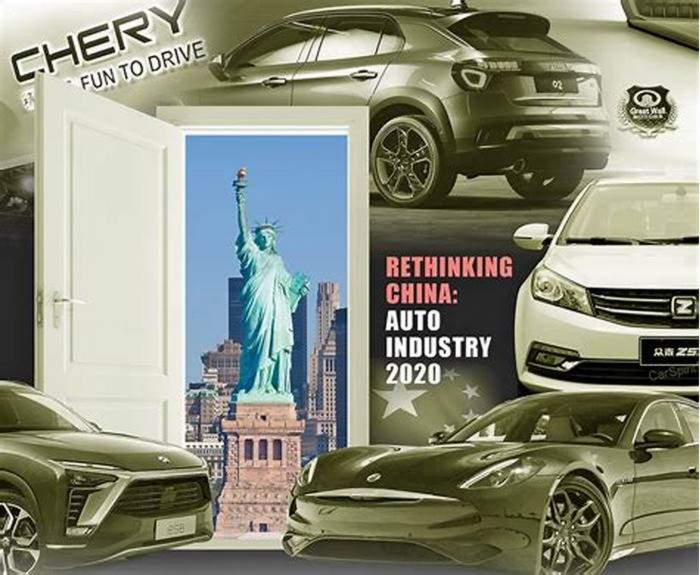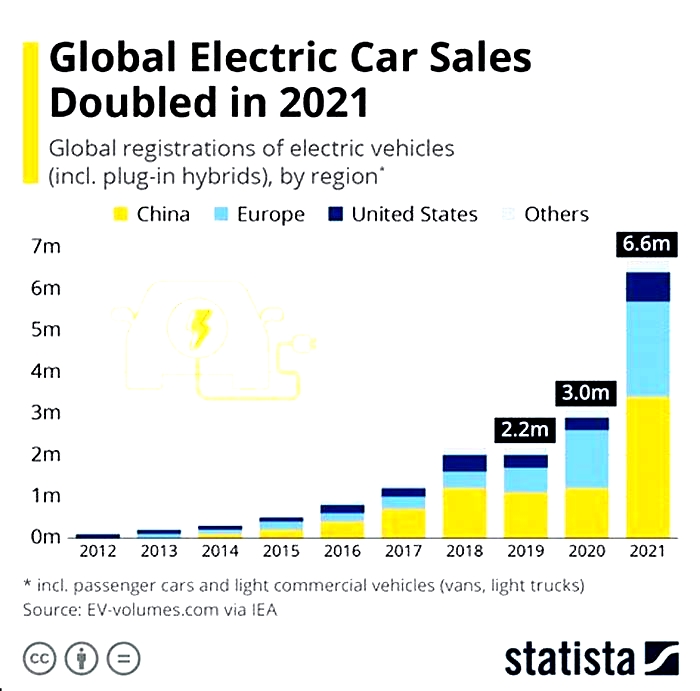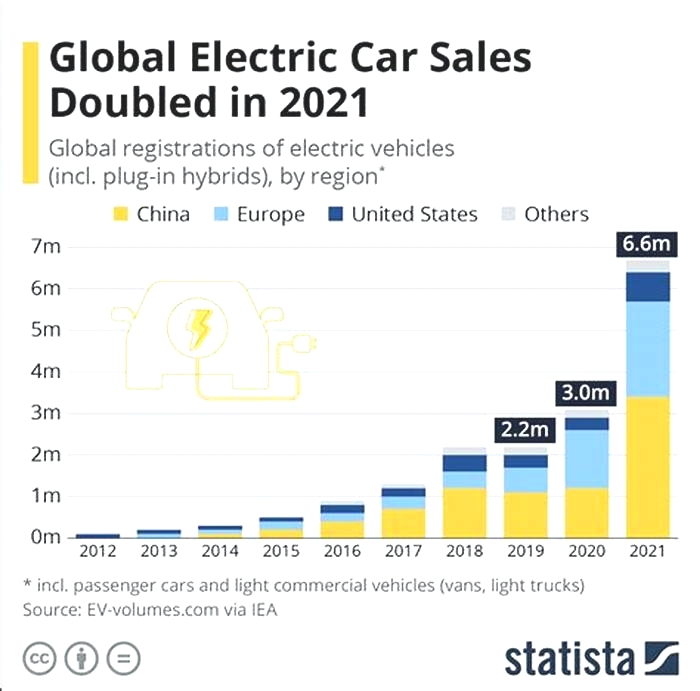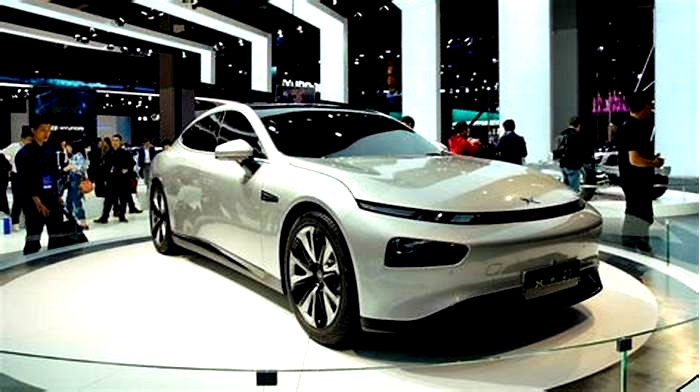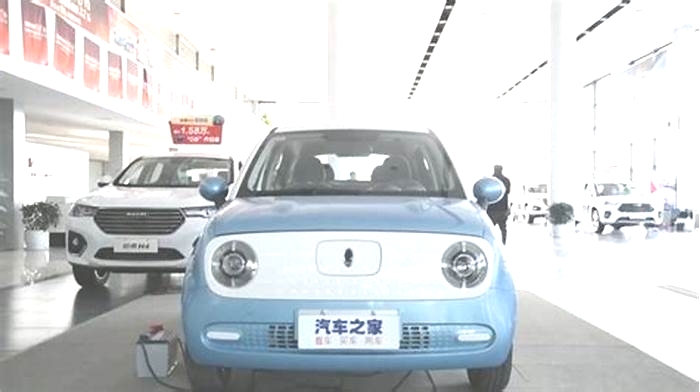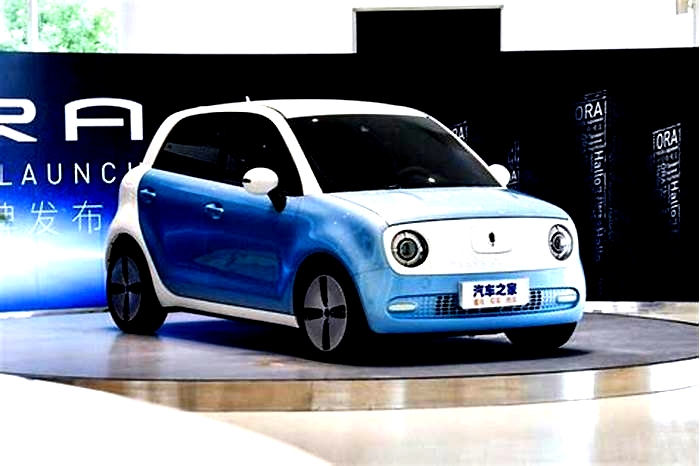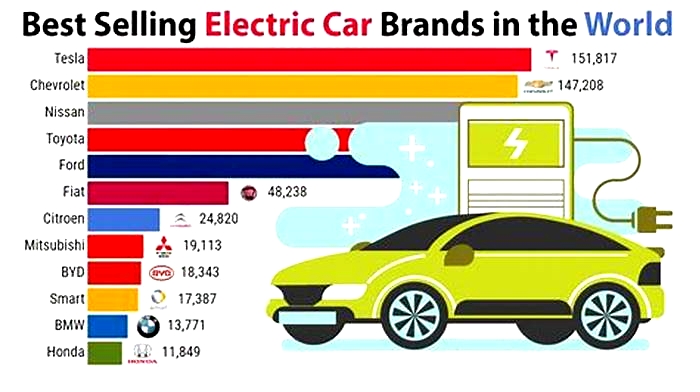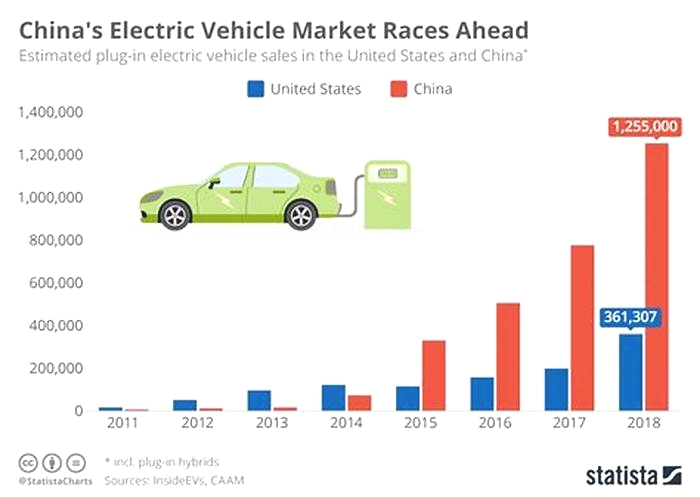Why are Chinese electric cars not sold in the US
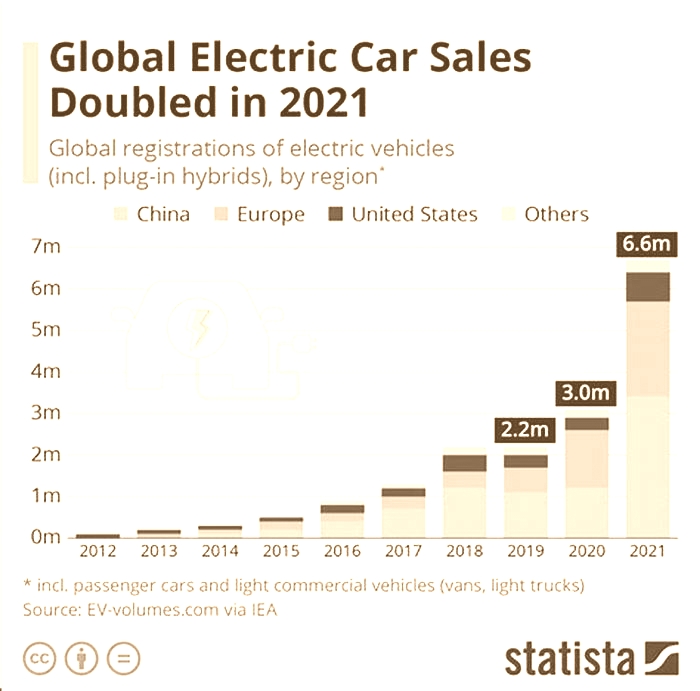
China Makes Cheap Electric Cars; Why Cant Americans Buy Them?
When Americans shop for an electric vehicle, theyre lucky if they find one under $30,000. The cheapest EV in the U.S., the Chevy Bolt, has an effective price (base sticker price minus the $7,500 tax credit) of about $20,000, including freight charges but not state tax. Thats the price GM advertises, which might be different from what you find at a dealership.
Meanwhile, across the Pacific, car shoppers in China have a much easier time finding EVs within that price range and thousands of dollars below it. Any Chinese EV brand could serve this point, but for the sake of comparison, consider the near Bolt equivalent, the new BYD Seagull. The electric hatchback gets about 251 miles of range and can charge between 30% and 80% in a half-hour.
The starting price? 73,800 yuan, or roughly $10,183. That's about $10,000 cheaper than Americas cheapest EV (after the tax credit), and its more than $5,000 cheaper than Americas cheapest car, the Nissan Versa, which lists for about $15,830.
A vehicle like the Seagull on American soil might attract more EV buyers, decreasing dependence on cheaper gasoline cars and pushing the U.S. closer to achieving a net-zero emission economy by 2050. In China, an estimated one-third of new car sales are electric, compared with 5.8% in the U.S. in 2022.
At the same time, opening the U.S. market to Chinese EVs would increase dependence on China at a politically sensitive time, which is why Americans likely wont see a BYD Seagull in their neighborhoods anytime soon, or any other Chinese EV.
Why Americans cant buy cheap Chinese EVs
Despite some speculation over Chinese companies swooping in and introducing a slew of cheap EVs to American drivers, no Chinese EV-maker is yet manufacturing cars in the U.S., nor do any have firm plans to do so in 2023.
In fact, diplomatic tensions between Beijing and Washington help make it unlikely Chinese EVs could be to our era what Japanese and South Korean cars were to the 1970s and '80s: affordable, fuel-efficient alternatives to American brands. Even after U.S. Secretary of State Antony Blinken and Chinese President Xi Jinping agreed in June to improve relations, the superpowers differ on so much global policy from the sovereignty of Taiwan and Ukraine to territorial disputes in the South China Sea its hard to imagine the U.S. opening itself to a flood of cheap Chinese EVs.
Attendees look at a BYD electric vehicle during the 2023 Central China International Auto Show on May 25 in Wuhan, China. (Getty Images AsiaPac via Getty Images News)
The only way to procure one now is to buy it from a third-party site like Alibaba and import it from China. But dont get your hopes up: A Trump administration-era 27.5% tariff still applies to Chinese EV imports. Taking into account the tariff, freight charges and registration fees, youre likely not going to pay much less than you would for a Chevy Bolt, especially because the latter qualifies for the $7,500 EV tax credit but Chinese EVs dont. In addition, cars made for the Chinese market arent subject to U.S. safety standards.
For Americans to really enjoy the low prices available in China, they would need Chinese EV companies to move their operations to North America, thus sidestepping the tariff. That would involve building factories and manufacturing cars in the U.S. (or in a place where the tariff doesnt apply, like Mexico). And while such a notion isnt impossible, so far only one Chinese EV company, Nio, has made strides to open on American soil, and even it has only leased space in San Jose, California, but hasnt built assembly plants or announced plans to do so.
Aside from political headwinds and tariffs, Chinese companies would also have to deal with the American publics perception of China. While certainly many Americans would buy a cheaper EV, regardless of where it came from, others might resist Chinese brands on the grounds that they dont want to support an economic rival. Mistrust and suspicion not helped by a spy balloon incident and the governments ban of TikTok from federal devices could sway public opinion away from Chinese cars, even if they are safe and reliable.
Will the U.S. ever make cheap EVs like China?
Looking to the near future, American automakers will have a tough time selling EVs at prices as low as those in China. Even with support from the Inflation Reduction Act, American EV-makers havent figured out how to secure battery-grade materials efficiently, leaving them at the mercy of the worlds largest producer of them China.
According to research from The New York Times, China controls about 41% of the worlds cobalt mining and 28% of lithium, two key ingredients in many long-range EVs. Even if Chinese mining companies don't extract the metals themselves, chances are the materials will still pass through China the country refines about 73% of the worlds cobalt and 67% of its lithium. It also produces about 77% of cathodes and 92% of anodes, two essential components in batteries, which is perhaps why more than 6 in 10 battery cells are made in China.
[The Chinese have] reached a point where they can manufacture cars efficiently like smartphones, whereas North America is still stuck trying to overhaul an outdated manufacturing supply chain.Zayn Kalyan, CEO of Infinity Stone Ventures
Control over the battery supply line has made China home to the world's largest electric vehicle market. Even American EV-maker Tesla has set up a Shanghai factory and sold 94,469 of its Model Ys in China in the first quarter of this year. For comparison, it sold about 83,664 Model Ys in the U.S. during the same period and 71,114 in Europe.
The U.S., for its part, produces less than 2% of the worlds lithium from a single mine in Nevada. American cobalt production is even more dismal: less than 0.40%, according to data insights from Mining Technology, an online publication covering the mining industry. The fact that the U.S. doesnt have viable supplies of metal is one major reason its EVs are so expensive (although greater recycling capacity could help ease the demand for mined lithium).
China has dominance over critical minerals and a robust manufacturing industry, says Zayn Kalyan, CEO of Infinity Stone Ventures, a Vancouver, British Columbia-based supplier of critical metals for clean energy. Theyve reached a point where they can manufacture cars efficiently like smartphones, whereas North America is still stuck trying to overhaul an outdated manufacturing supply chain.
To be sure, the U.S. does have critical metals on its home turf. Ample lithium reserves are in several states, including Nevada, California and North Carolina, while cobalt has been discovered in Idaho and Minnesota. But unless the permitting process for mines, which can take seven to 10 years, is shortened, its hard to imagine these states supplying American EV-makers anytime soon.
At this point, for the U.S. to sell cheap EVs like China, it would need to do something radical, like invent new battery technology that requires fewer or different chemistries of metals. But even that would require a long-term perspective. The issue, Kalyan says, isnt finding a different composition of metals. Its finding a different composition that you can scale. There are lots of new chemistries to compete with lithium-ion batteries, but scaling it upward to meet demands for EVs is the challenge.
In the meantime, you can still order a new Chevy Bolt for about $20,000 after the $7,500 tax credit. But even that option will soon be unavailable GM said it will discontinue the Bolt after 2023. CEO Mary Barra has hinted at plans for replacing it with another affordable option, but there has been no official announcement. As of now, GM plans to convert the Orion Assembly plant, which makes Bolts, to build more expensive EV Silverados and Sierras, continuing an American trend of building bigger cars at slightly higher production costs for wider profit margins.
(Top photo by Getty Images AsiaPac via Getty Images News)
MIT Technology Review
Last Thursday, the Biden administration announced it would investigate the security risks posed by Chinese-made smart cars, which could collect sensitive data about our citizens and our infrastructure and send this data back to the Peoples Republic of China, the statement from White House claims.
While many other technologies from China have been scrutinized because of security concerns, EVs have largely avoided that sort of attention until now. After all, they represent a technology that will greatly help the world transition to clean and renewable energy, and people have greeted its rapid growth in China with praise.
But US-China relations have been at a low point since the Trump years and the pandemic, and it seems like only a matter of time before any trade or interaction between the two countries falls under security scrutiny. Now its EVs turn.
The White House has made clear that there are two motivations behind the investigation: the economy and security.
Even though the statement didnt explicitly mention EVs, its undeniable that they are the only reason Chinese automakers have now become serious challengers to their American peers. Chinese companies like BYD make quality EVs at affordable prices, making them increasingly competitive in international markets. A recent report by the Alliance for American Manufacturing, an industry group, even describes EV competition as Chinas existential threat to Americas auto industry.
The issue of Chinese EV imports really hits on so many major political factors all at the same time, says Kyle Chan, a sociology researcher at Princeton University who studies industrial policies and China. Not just the auto plants in swing states like Michigan and Ohio, but the broader auto manufacturing sector spread over many important states.
If the US auto industry fails to remain competitive, it will threaten the job security of millions of Americans, and countless other parts of the US economy will be affected. So its no surprise Chinese EVs are seen as a major economic threat that needs to be addressed.
In fact, its one of the few issues everyone seems to agree on in this election cycle. Before the Biden investigation, Trump drew peoples attention to Chinese EVs during campaign speeches, vowing to slap a 60% tariff on Chinese imported goods. Josh Hawley, a Republican senator and a longtime China hawk, proposed a bill last Tuesday for a whopping 125% tariff on Chinese cars, including Chinese-branded cars made in other countries like Mexico.
Say goodbye to the U.S. car market as we know it: Cheap Chinese EVs are coming
- Chinese brands have mastered quality and affordability on EVs.
- After years of eyeing the American market, Chinese brands are poised to arrive.
- Competition from Chinese brands is "very, very real."
After years of preparation, Chinese car companies are poised to upend the U.S. electric-vehicle market.
Industry watchers say it's only a matter of time before Chinese automakers bring their impressive and importantly, inexpensive electric cars to the U.S. After years of threatening to set up shop on American shores, the companies are closer than ever to making the move to the U.S.
On their home turf, Chinese companies have already vanquished their American competitors, eating up market share from the likes of Ford and General Motors by offering better quality and less expensive electric cars for shoppers. They've started exporting a slew of brands to Europe too.
As Chinese car industry leaders like Nio and Geely eye a move to the States, the big question is can they overcome political frictions and will American buyers go along for the ride?
"It's going to be an interesting couple of years ahead to see whether Ford and GM and the like can stave off that Chinese competition coming in," said Martin French, a managing director at the consultancy Berylls. "From what we saw at the Shanghai auto show this year, that competition is very, very real."
China's EV industry has exploded in recent years. In 2022, U.S. EV sales hit a new high of 800,000, while Chinese buyers snapped up some 5 million all-electric passenger vehicles. After years unchallenged, Tesla is about to lose its crown as the world's largest EV maker to a Chinese company, BYD.
Toyota, Hyundai, now BYD
In the 1970s, Japanese car companies like Toyota and Honda swooped in with affordable and fuel-efficient vehicles that knocked U.S. carmakers on their heels. More recently, Korean brands like Hyundai and Kia have been eating Ford and GM's lunch on SUVs.
History may repeat itself. Chinese EV manufacturers can gain a foothold in the U.S. by coming in at a budget price point, analysts said.
"Is it possible for Chinese companies to do what others have done before, only now with electric vehicles? The answer is absolutely," Bill Russo, a former Chrysler executive and CEO of Automobility, a Shanghai-based advisory firm, told Insider. "Who doesn't want affordable vehicles?"
But as political tensions between China and the U.S. intensify, entry into the American market could be more painful for China than it was for Japan or Korea. In addition to general anxieties from consumers who may be less likely to support a Chinese brand, analysts said, lawmakers are likely to apply more scrutiny to any Chinese company with plans to operate in the U.S.
A Trump-era import tariff of 27.5% remains in effect on Chinese cars, while the Biden administration's new tax credits for EV purchases favor vehicles built in North America with battery components that don't come from China.
China is winning on prices
American brands, including EV leader Tesla, have long been promising a long-range EV option priced at or below $30,000. But progress has been slow, and sometimes regressive. GM plans to cancel the Bolt EV, America's cheapest EV, by the end of 2023 and use that factory to build pricey electric pickups instead.
Meanwhile, Chinese brands are unmatched in affordability on their home turf and in Europe.
One of China's most popular EVs is the Wuling Hong Guang Mini, a minuscule city car that costs the equivalent of $5,000. At the Shanghai auto show last month, BYD launched a stylish, pint-sized hatchback called the Seagull with 190 miles of estimated range. Its starting price? Less than $11,000.
Tu Le, managing director of Sino Auto Insights, a consulting firm that specializes in the Chinese auto industry, says Chinese firms aren't skimping on quality for the sake of affordability.
"They have the products to back it up," he said. "I've driven a number of the Chinese EV brands, and boy oh boy, the Europeans are in trouble."
But Chinese domination won't happen overnight
Even when Chinese brands do hit American shores, it won't happen all at once. These companies are likely to test the waters with low-volume launches and study the market before diving in fully. Of the dozens of brands that may want a slice of the pie, only a few will be able to sell in the U.S. at any significant volume, Le said.
The carmakers most likely to break through first will be those that already have a global presence, Russo said: Geely and BYD. (BYD's CEO recently said the company isn't currently eyeing the American passenger-car market, but the company does already have a small commercial vehicle footprint here).
Polestar, a Swedish EV brand owned by Geely and Volvo, already imports from China. Nio, a startup, has announced plans to enter the U.S. by 2025.
The next step: Set up manufacturing in North America, which Le expects Chinese firms to do once they snag a foothold in the market. The sheer size of the U.S. car market means new entrants will need to build locally to compete seriously in the long term, he said.
"Americans think the tidal wave is coming from Silicon Valley. It's not," Le said. "It's coming from both directions."

